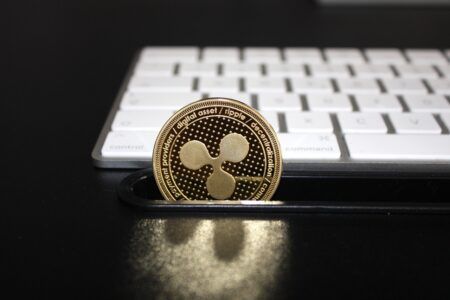The blockchain and cryptocurrency space has been growing in Japan, partly thanks to support that came from the country’s Prime Minister, Shinzō Abe, which has recently stated it’s important to look into the possibilities of the nascent industry.
According to a report published by leading fintech media company ChainDD, licensed cryptocurrency exchanges are currently “very active” in the country, and support from Abe’s government has been helping it grow, with “explosive” digital currency trading volumes expected in the future.
During a Japanese Budget Committee meeting held earlier this month, ChainDD’s report notes, Abe answered questions regarding blockchain technology raised by an economic critic and member of the House of Councilors, Takeshi Fujimaki. He was quoted as saying:
I would like to call it “cryptographic asset”. Opportunities for the development of cryptographic assets abound in not only the financial industry, but other commercial areas, due to its convenience and security.
Per his words, Japan has to pay attention to the nascent cryptocurrency and blockchain industry, as it’s “vital” to look into the “key to achieve world-wide success in this area.” While the government isn’t able to predict what the future holds, ChainDD revealed he believes it’s necessary to research potential “economic growth possibilities” within the sector.
Currently, it adds, the cryptocurrency industry’s development doesn’t rely on any government, but on the enthusiasm of the private sector and on venture capital. As CryptoGlobe covered earlier this year, Japan’s financial regulator, the Financial Services Agency (FSA) has in fact dropped cryptocurrency futures plans, although it didn’t discard the possibility of a Bitcoin Exchange-Traded Fund (ETF).
Japan’s Financial Regulator Shortens Waitlist
Despite the move, the FSA has, according to ChainDD, revealed that the time needed for cryptocurrency-related firms to register with it has decreased. The regulator has in the past revealed over 190 firms are trying to register with it, and that on average the process takes six months.
The report notes organizations that try to become cryptocurrency operators in the country have to “answer more than 400 questions,” and wait “approximately three to four months” while the agency looks into their applications. To be accepted, the FSA conducts onsite inspections, and then takes one to two months to accept their registration.
Notably Coincheck, a cryptocurrency exchange that suffered a hack in which cybercriminals stole over $530 million worth of NEM tokens from its wallets, has received a license from the FSA one year after the security incident.
The country has also established Japan’s Virtual Currency Exchange Association (JVCEA), an organization authorized by the FSA as a self-regulatory body. Last year, it reportedly hosted 11 trade association meetings, and announced plans to expand.








